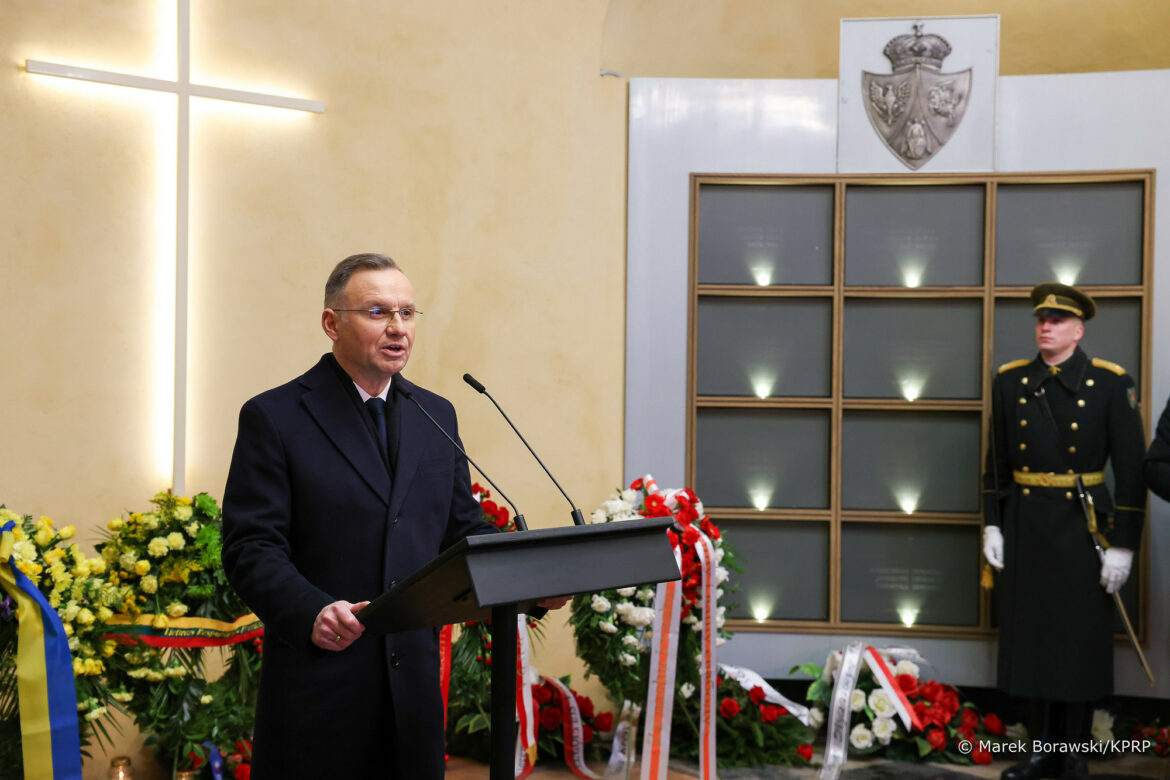At the Rasos Cemetery in Vilnius, the Presidents of Poland and Lithuania took part in the solemn celebrations of the 161st anniversary of the outbreak of the January Uprising. During the event, which took place on Sunday 21 January 2024, President Andrzej Duda emphasised that the Polish, Lithuanian, Ukrainian and Belarusian peoples were united by the memory of their common heritage of freedom, the tradition of struggle for self-determination and the experience of peaceful coexistence.
“Once again, Lithuanians, Poles, Belarusians and Ukrainians are celebrating under the sign with which the uprising authorities stamped their documents. It is a tripartite coat of arms with the White Eagle, the Pahonia and Saint Michael the Archangel, symbolising both the unity and the separate identities of Poland, the Grand Duchy of Lithuania and Ruthenia”, recalled President Duda in his speech.
The President referred to the current situation, noting that our nations still must resist Russian imperialism.
“The next stage of this struggle is now Russia’s full-scale invasion of independent Ukraine – as well as the tightening noose around Belarus, which is the Minsk regime’s dependence on the Kremlin”, stressed Andrzej Duda.
He pointed out that “by opposing Russia’s neo-imperialist policies, the free nations of Central and Eastern Europe bring solidarity support to the fighting Ukrainians and the Belarusian democratic opposition”.
At the ceremony, the President of Lithuania, Gitanas Nausėda, and the leader of the Belarusian opposition, Svyatlana Tsikhanouskaya, delivered speeches.
The January Uprising broke out on 22 January 1863. The insurgents attacked Russian garrisons in the Kingdom of Poland. During the struggle, which lasted more than 1.5 years, there were more than a thousand minor or major skirmishes, and at least 150,000 insurgents took part in the fighting. It was the longest lasting and most massive independence uprising of the 19th century.
Adrian Andrzejewski





